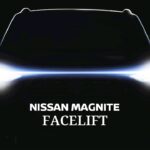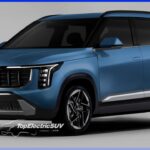MG Motors is about to launch the Windsor EV in the Indian market where it will rival the mega-popular Tata Nexon EV.
In this post, we shall compare the MG Windsor EV and Tata Nexon EV with the available details. The EV industry is gaining momentum in India rapidly. We know that Tata Motors is the uncontested market leader in this space. Tata Nexon EV is the highest-selling EV in the country. People have really taken a liking to electric cars from Tata Motors. The Indian auto giant leveraged the popularity of its ICE cars and launched electric iterations of the same. Hence, the sales skyrocketed and it went ahead of every other car company. Everyone else is playing catch-up. On the other hand, MG also has two EVs in our market – ZS EV and Comet EV. Now, it plans to launch the Windsor EV. Let us take a look at the details of this comparison.
MG Windsor EV vs Tata Nexon EV – Specs
While there are no official reports confirming the specifications of the upcoming MG Windsor EV, we know that it is the same car as the Wuling Cloud EV sold in international markets. In India, it will be on sale under the MG banner. But the design and specs will most likely be the same. Hence, we can expect two battery pack options – 37.9 kWh or 50.6 kWh offering a range of around 360 km and 460 km, respectively. It will get a 7 kW AC charger as standard. More details will emerge at a later stage.
On the other hand, even the Tata Nexon EV comes in two variants – 30.2 kWh (MR) and 40.5 kWh (LR). The range figures for these are 325 km and 465 km, respectively. The power and torque figures range from 127 hp / 215 Nm to 143 hp / 215 Nm, respectively. Charging the Nexon EV from 10% to 100% takes 56 minutes and the acceleration from 0 to 100 km/h comes up in just 8.9 seconds. With a 350-litre boot compartment, the buyers will have enough space to carry a family around.
| Specs | MG Windsor EV (exp.) | Tata Nexon.ev |
| Battery | 37.9 kWh & 50.6 kWh | 30.2 kWh & 40.5 kWh |
| Range | 360 km & 460 km | 325 km & 465 km |
| Power | – | 127 hp / 215 Nm and 143 hp / 215 Nm |
| 70 kW DC Fast Charging | – | 10% to 100% in just 56 minutes |
| Acceleration (0-100 km/h) | – | 8.9 seconds |
| Ground Clearance | – | 190 mm |
| Boot Capacity | – | 350-litre |
Features Comparison
In terms of features, both EVs will offer modern amenities. The expected functionalities with the MG Windsor EV include a compact digital instrument cluster, wooden inlays on the dashboard, tons of storage spaces, a colossal touchscreen infotainment display, steering-mounted controls, wireless charging, elegant and stylish door panels, ambient lighting, seamless AC vents integrated into the dashboard, armrest, rear AC vents, a colossal boot compartment, gear level mounted on the steering wheel, all windows with one-touch up/down control, high-res 360-degree camera, powered tailgate, comfortable cushioning for the seats with 135-degree recline angle, rear armrest and more.
On the other hand, the Tata Nexon EV is already a prominent product in its segment. Its top highlights are:
- 12.3-inch Cinematic Touchscreen Infotainment Display by HARMAN
- Illuminated Two-spoke Steering Wheel
- Customizable 10.25-inch Digital Instrument Cluster with Navigation
- 360-degree Camera
- Ventilated Front Seats
- Single-pane Sunroof
- Wireless Charging
- Connected Car Tech
- JBL Sound System
- Voice Commands
- Air Purifier
- OTA Updates
- Arcade EV App Suite for Streaming OTT Platforms like Prime Video and Disney+ Hotstar
- 5-star Bharat NCAP Rating
- V2L and V2V Technology
- Blind Spot Monitoring
- Air Purifier with AQI Display
Our View
I feel both these electric SUVs will play a crucial role in shaping the future of this space in India. We already know that the Nexon EV is superhit. It has been selling like hotcakes. People know the moniker and are willing to experiment. However, what intrigues me the most is watching how well the customers will embrace the MG Windsor EV. We need to wait a little more to know all the details about the Windsor EV. Only then will we be able to make up our minds.
Also Read: Tata CURVV EV vs Nexon EV Comparison – What All’s Different?







